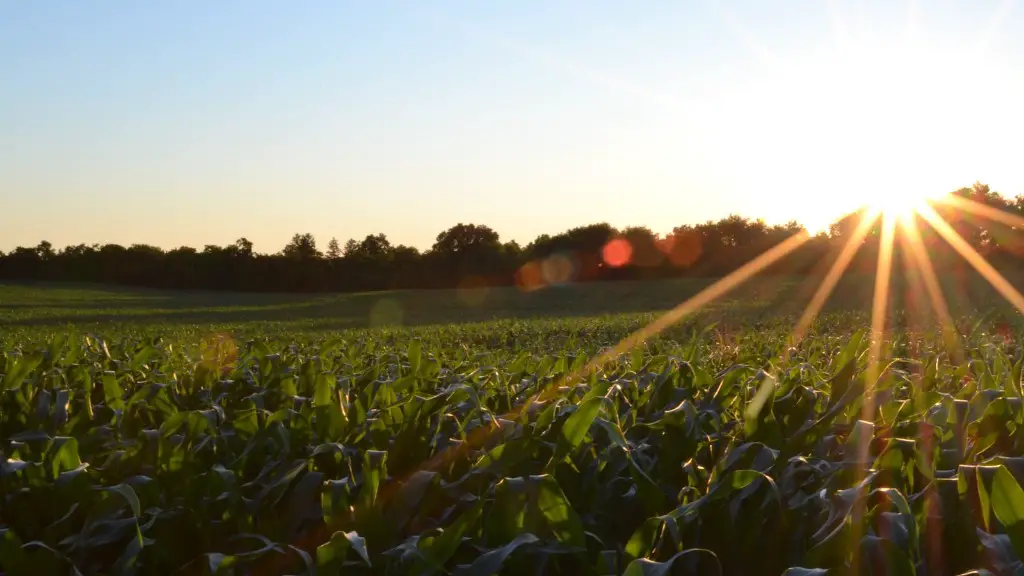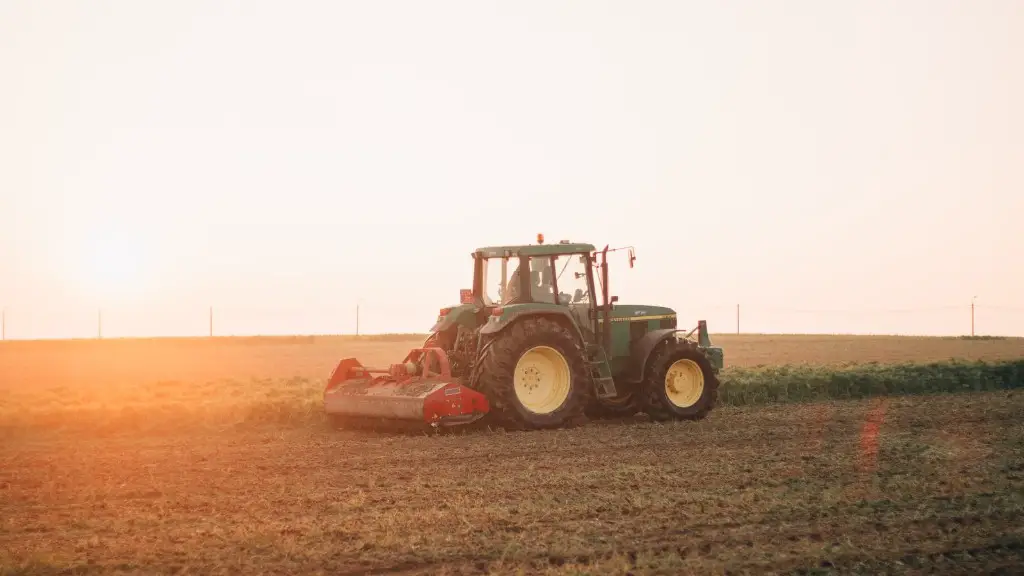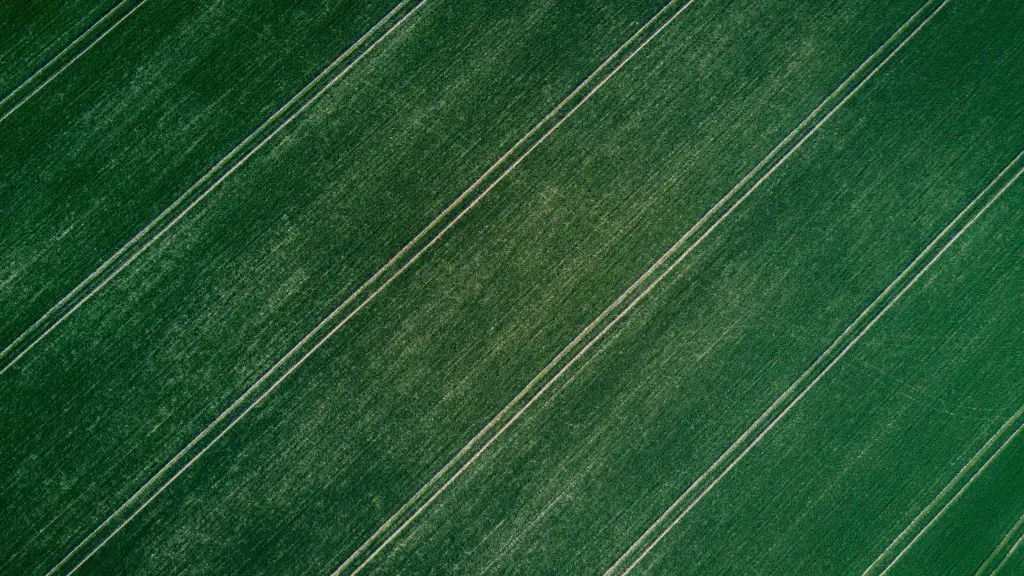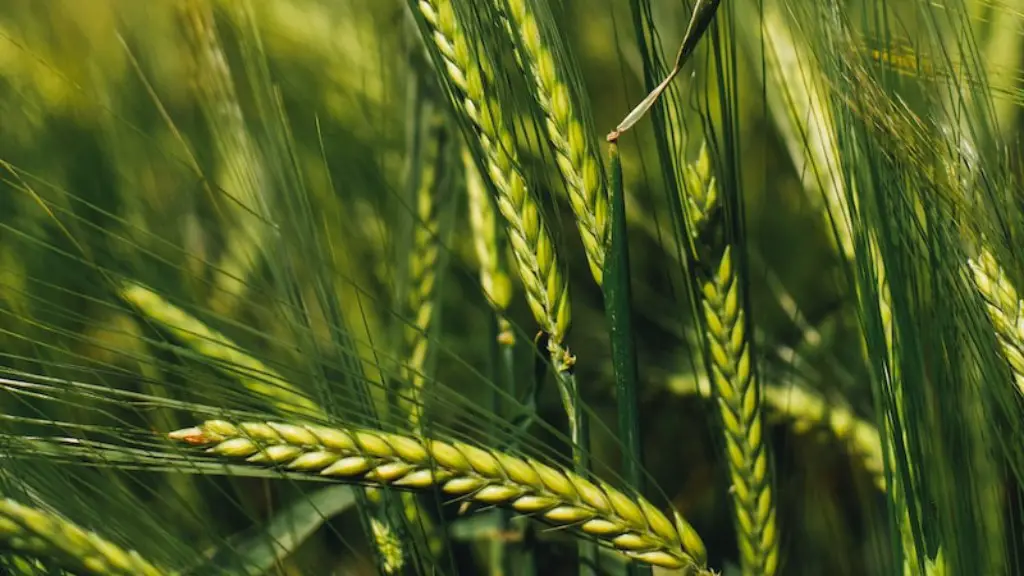The agriculture, food, and natural resources industry is a diverse sector that produces the food we eat, the clothes we wear, and the energy we use. It includes farmers and ranchers, food scientists and processors, foresters and wildlife managers, fruit and vegetable growers, and more. This industry is essential to our economy and our way of life.
Some jobs in agriculture, food, and natural resources include farmers, ranchers, agricultural technicians, foresters, food scientists, and environmental scientists.
What is an example of an agriculture food & natural resources career?
There are many different types of jobs in the agriculture, food, and natural resources industry. You could work on a farm, ranch, dairy, orchard, greenhouse, or plant nursery. You could also work in a clinic or laboratory as a scientist or engineer. Some agriculture, food, and natural resources workers market, sell, or finance agricultural goods. For example, you might market products made from plants and animals.
The agricultural industry is a vital sector of the economy, responsible for the production of food, fiber, and other essential commodities. This career field is focused on the production, processing, marketing, distribution, financing, and development of these agricultural commodities and resources. Agricultural professionals work to ensure that our food supply is safe and abundant, and that natural resources are managed sustainably. If you are interested in a career in agriculture, there are many exciting and rewarding opportunities available.
What would be considered careers in natural resources
There are many different types of jobs you can get as a natural resources professional. Here are eight of the most common:
1. Natural Resource Management: This field covers a broad range of topics, from land and water conservation to resource extraction and sustainable development.
2. Ecosystem Science and Sustainability: This field focuses on understanding how ecosystems work and how we can use them sustainably.
3. Fish, Wildlife, and Conservation Biology: This field focuses on the study and management of fish, wildlife, and other aquatic resources.
4. Geosciences: This field covers the study of the Earth’s physical features and processes.
5. Restoration Ecology: This field focuses on restoring damaged ecosystems.
6. Conservation Science: This field focuses on the study of how to conserve natural resources.
7. Environmental Science: This field focuses on the study of the environment and the impact of human activity on it.
8. Park and Recreation Management: This field focuses on the management of parks and recreation areas.
The Agriculture, Food and Natural Resources cluster includes everything related to the creation of agricultural products. This includes farmers, ranchers, scientists, engineers and veterinarians. Agricultural products include food, fiber, wood, and ornamental plants. The cluster also includes the management and conservation of natural resources, such as soil, water, and wildlife.
What are the 6 career areas in agriculture?
The agricultural industry employs a wide range of workers, from farmhands and growers to sales representatives and purchasing agents. Agricultural equipment technicians maintain and repair the machines that farmers use, while grain elevator operators move agricultural products like wheat and corn. With a degree in agriculture or a related field, you can pursue a career in this important industry.
There are many career opportunities in agriculture for those interested in the field. Agricultural extension is a great way to learn about different aspects of agriculture and to help farmers with their operations. Agricultural engineering is another option for those interested in working with machinery and equipment used in agriculture. Animal science is a field that focuses on the care and management of livestock. Agricultural economics is a field that studies the market trends of agricultural products. Crop science is a field that deals with the production of crops. Soil science is a field that deals with the study of soil. Forestry is a field that deals with the management of forests. Horticulture is a field that deals with the production of plants.
What is the best career in agriculture?
There are many great careers in agriculture! Agricultural engineers work to improve agricultural systems and farm manager work to ensure efficient operations. Soil and plant scientists help farmers understand and manage the land, while conservation planners work to protect natural resources. Agricultural salespeople help connect farmers with the buyers of their products. Commercial horticulturalists grow and sell plants and flowers.
Agricultural workers need a range of skills to be successful. In addition to the specific skills required for the job, agricultural workers should also possess excellent hand-eye coordination, strong listening skills, physical stamina, and mechanical skills. Agricultural workers need to be able to work well with others and be able to perform physically demanding tasks. Having strong mechanical skills is also important, as agricultural workers need to be able to operate farm machinery.
What do natural resource workers do
Natural resource specialists are important for the protection of our environment. They study sensitive habitats, develop natural resources regulations and guidance, and help protect lives, property, and resources from fires. They also inventory and monitor wildlife or vegetation, analyze and mitigate environmental impacts, and restore and protect threatened animals and plants.
The environment is one of the most important aspects of our planet, and it is important to protect it. There are many different environmental jobs that help to do this. Here are 16 in-demand environmental jobs that help to keep our planet clean and safe.
1. Soil technician- soil technicians help to manage and conserve soil resources. They may work in agricultural, forestry, or environmental organizations.
2. Forester- foresters help to manage and protect forests and other natural resources. They may work for the government, private companies, or environmental organizations.
3. Agricultural and food scientist- agricultural and food scientists help to develop new ways to grow crops and raise animals. They may work in research, teaching, or extension.
4. Natural resource specialist- natural resource specialists help to manage and conserve natural resources such as water, land, and minerals. They may work for the government, private companies, or environmental organizations.
5. Wind turbine technician- wind turbine technicians install and maintain wind turbines. They may work for utility companies, wind farms, or manufacturing companies.
6. Environmental scientist- environmental scientists help to protect the environment and human health. They may work in research, government, or private industry.
What are the 7 main groups of natural resources?
Natural resources are materials and substances that occur naturally and can be used for economic development and growth. Oil, coal, natural gas, metals, stone and sand are all examples of natural resources. Other natural resources include air, sunlight, soil and water.
Natural resources are essential to our survival and wellbeing. As a natural resources major, you will study the science of how these resources are managed and used. You will also develop the skills to create sustainable environmental policies. This is a critical area of study, as our natural resources are under increasing pressure from population growth and climate change. With your help, we can protect these vital resources for future generations.
What are the ten careers in agriculture
A career in agriculture can be very rewarding, but it is important to do your research before choosing a specific career path. Agricultural economists study the economic principles that underlie the production and distribution of food and fiber. They use this knowledge to develop public policy and make recommendations to farmers, agribusinesses, and government officials. Agricultural engineers apply engineering principles to solve problems related to food production, land use, and water resources. They may develop new methods of irrigation, design agricultural machinery, or develop environmental control systems for greenhouses and other agricultural facilities. Agronomists are experts in soil science and plant nutrition. They advise farmers on the best methods for planting, fertilizing, and irrigation. Animal nutritionists develop feeding programs to optimize the health and growth of livestock. Animal physiologists conduct research to improve the health and productivity of livestock. Aquaculturists manage fish farms and develop new methods of fish farming. Biochemists conduct research on the chemical processes that occur in living organisms. They may develop new drugs or study the effects of environmental pollutants on human health. Biometricians use mathematical and statistical methods to analyze data from experiments and surveys.
Agricultural practices can be divided into several broad categories, depending on the scale and type of activity. Pastoral farming is characterized by the raising of livestock, while arable farming focuses on crops. Shifting agriculture is a type of farming that involves moving cultivation to different areas in order to allow the land to recover. Mixed farming encompasses both livestock and crops, while nomadic agriculture is based on the movement of herds in search of pasture. Sedentary agriculture is rooted in one location, while subsistence farming is designed to produce enough food for the farmer and their family. Commercial agriculture is geared towards producing crops or livestock for sale.
What are the 9 agriculture career focus areas?
The agricultural industry offers a wide variety of career opportunities. There are nine main areas of focus within the industry, including agribusiness systems; agricultural education; animal systems; biotechnology; environmental services; food products and processing; natural resources; plant systems; and power and structural technical systems. Within each of these areas, there are many different career paths that one can pursue. With the right education and training, anyone can find a fulfilling career in the agricultural industry.
There are many different types of farms, each with their own unique characteristics. Here are 15 different types of farms:
1. Aquaculture Farming: Aquaculture is the practice of farming aquatic animals or plants in tanks or enclosures, usually for food.
2. Cooperative Farming: Cooperative farming is a type of agriculture where farmers work together to pool their resources and expertise.
3. Hay Farming: Hay farming is the cultivation of hay for animal feed.
4. Organic Farming: Organic farming is a type of agriculture that focuses on producing food using organic methods, without the use of synthetic pesticides or fertilizers.
5. Urban Farming: Urban farming is the practice of growing crops or keeping livestock within the boundaries of a city.
6. Nomadic Farming: Nomadic farming is a type of agriculture where people move regularly to new areas to farm, often following herds of animals.
7. Sedentary Farming: Sedentary farming is a type of agriculture where people remain in one place to farm.
8. Intensive Farming: Intensive farming is a type of agriculture that uses high levels of inputs such as fertilizers and irrigation to produce large yields.
9. Permaculture Farming:
Conclusion
There are many jobs in agriculture food and natural resources. Some examples include farmers, ranchers, agricultural workers, food scientists, and dietitians.
There are many different jobs in agriculture, food, and natural resources. Some examples include farmers, food scientists, and foresters. Agriculture, food, and natural resources are important sectors of the economy and offer many career opportunities.





